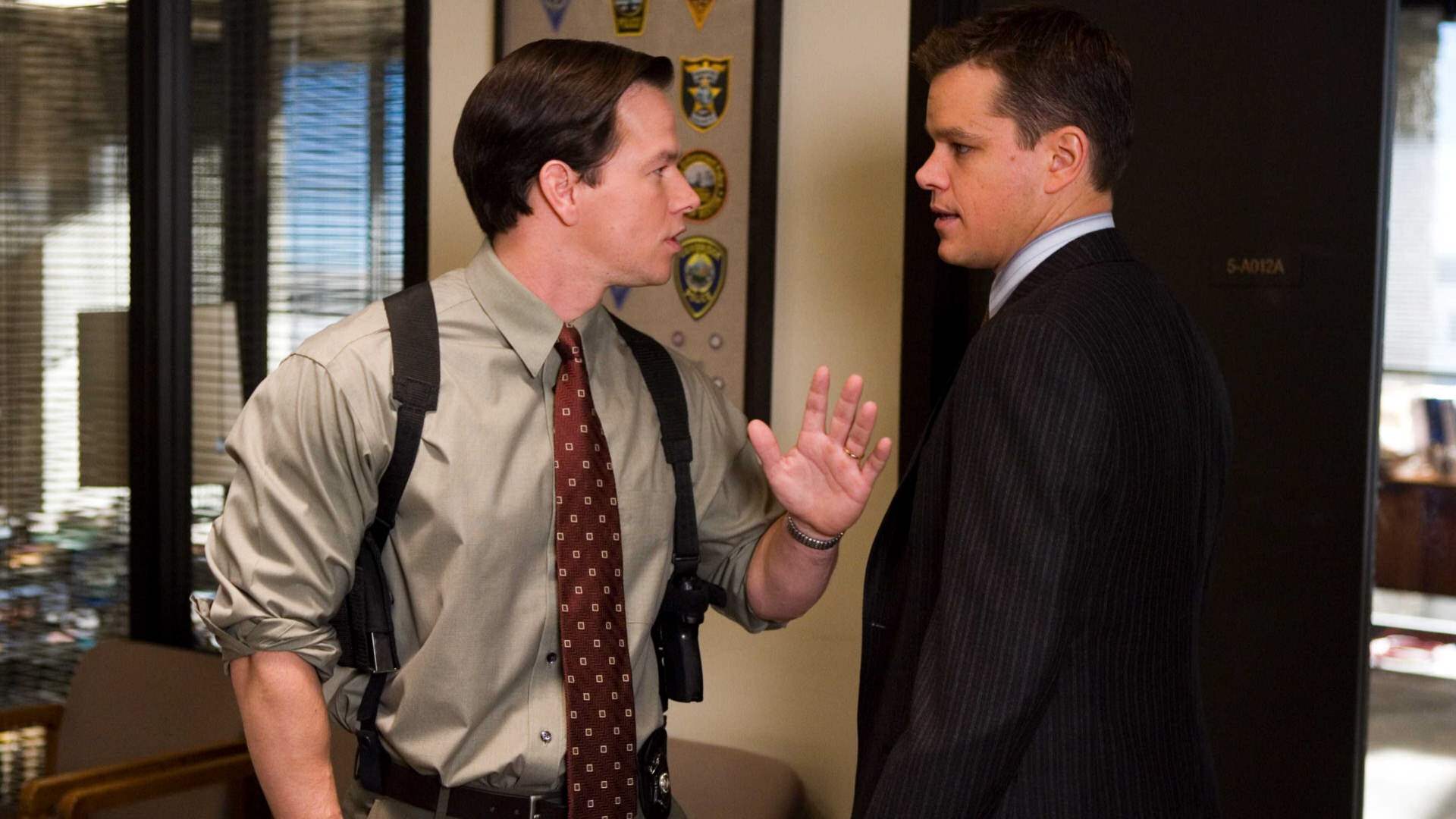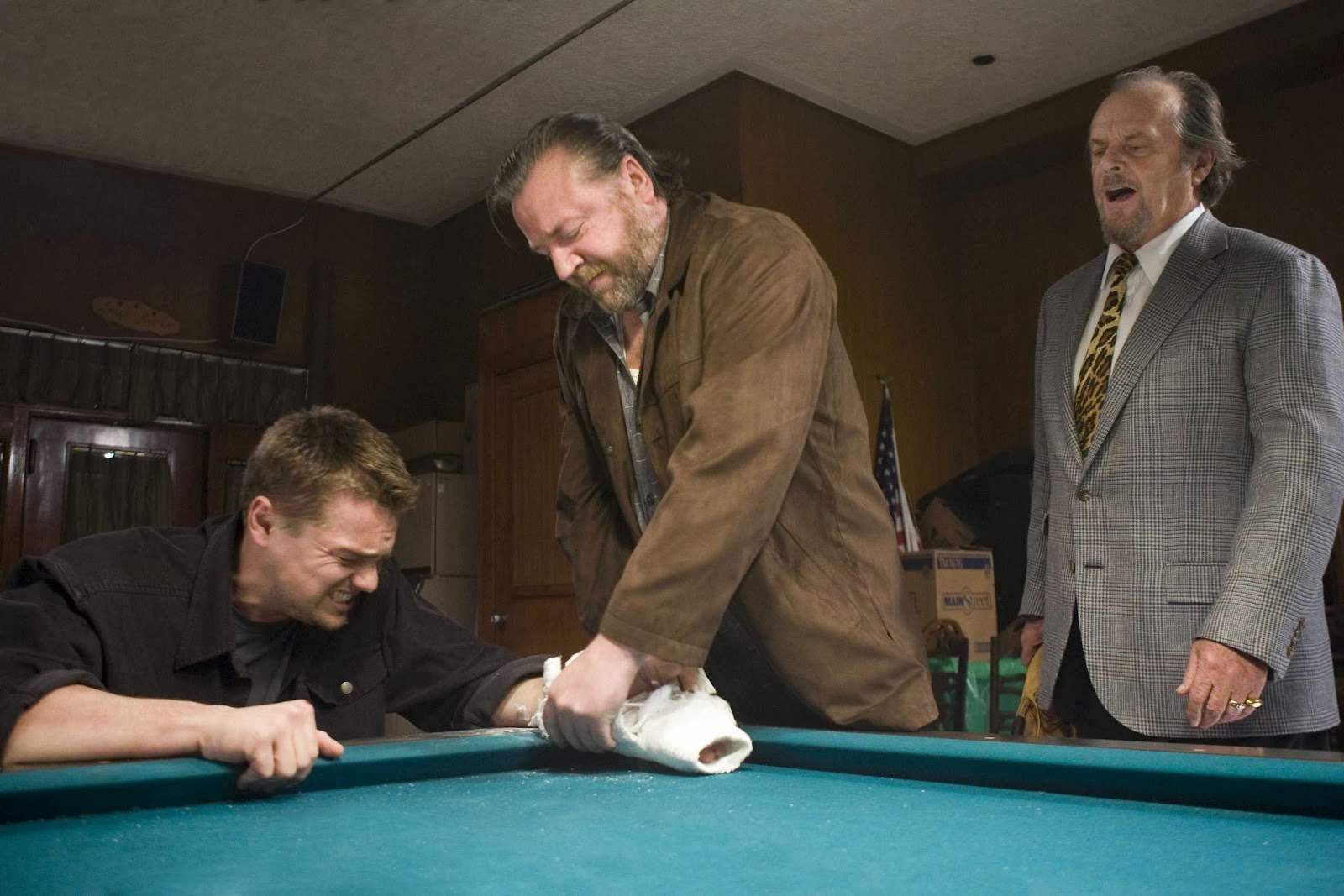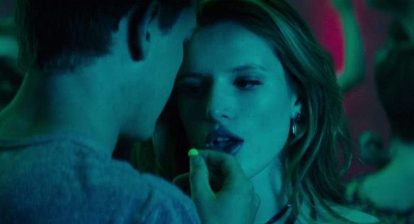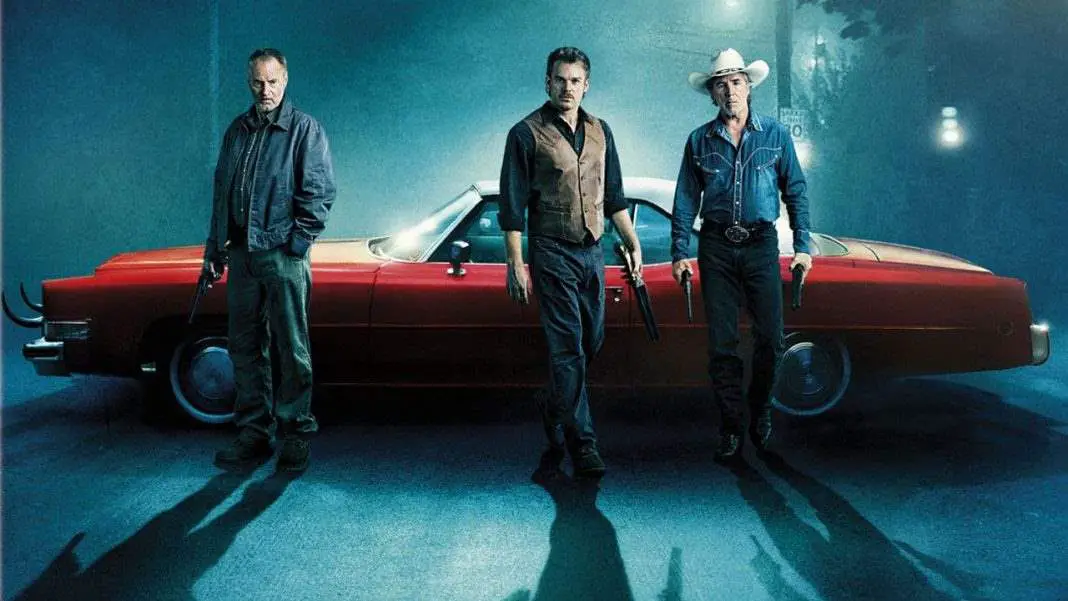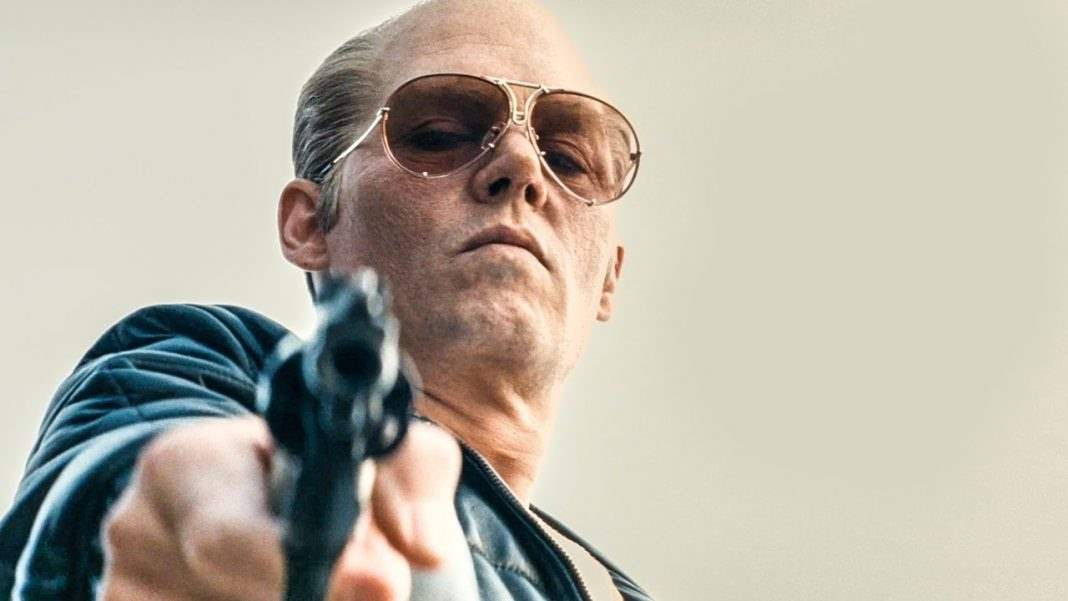Horror is evolving as a genre. Although your local multiplex is still peppered with the usual contenders, look a bit closer and you’ll find the latest drama, thriller, or crime offering is closer to horror than you might expect. In this bi-weekly series, Joey Keogh presents a film not generally classified as horror and argues why it exhibits the qualities of a great flight flick, and therefore deserves the attention of fans as an example of Not Quite Horror. This week, it’s Martin Scorcese’s Oscar-storming gangster opus The Departed. Need more Not Quite Horror? See the whole archive right here.
Mob movies are, by their very nature, violent. The Departed is, by all accounts, a violent story with very little violence actually carried out onscreen. As with the best Not Quite Horror movies, the fear is mostly created by the threat of violence–think Benicio Del Toro’s verbal sparring with Emily Blunt in Sicario, or all of those kitchen table meetings in Snowtown.
Scorcese, obviously, knows his way around a scene. With The Departed, he doesn’t bother lulling us into a false sense of security before letting loose with some bloodshed. Instead, he lets sequences play out at a steady pace before unleashing the violence–in spurts, rather than shocks, like blood squirting out of the many head shots that punctuate the film’s wordier moments.
Described as a “crime drama/thriller” (aren’t they all?) his tale of a crooked cop working as a mole for a ruthless crime boss and an undercover cop trying to simultaneously infiltrate the gang takes its time getting going. There’s not a lot of setup, though; we’re introduced to these characters and their South Boston playground, given the tools with which to understand their machinations and then thrust into the action.
Death permeates everything here. Even the film’s title makes reference to the dead, uttered just once in the midst of a meeting. The deaths of key characters seemingly come out of nowhere, with Captain Queenan’s being a particular shock to the system, landing as he does at the feet of DiCaprio’s Billy, blood splashing onto his pants.
Once the final act kicks off, and the police are in hot pursuit of their guy, it’s clear that anybody is fair game and indeed Costello’s perishing seems par for the course and it is only by whose hand he eventually falls victim that surprises. In fact, Johnny Depp’s Whitey Bulger, in Black Mass, was never going to stand a chance against what is Jack Nicholson’s most restrained performance as Frank Costello.
Costello beats Billy with his own boot, sprinkles hookers with cocaine and taunts Matt Damon’s Sullivan (his mole, who he’s groomed since he was a kid) in a porno theatre with a strap-on. It’s a character who could easily have been a caricature, but in Nicholson’s hands, Costello is a quietly menacing nightmare.
The Departed is a very talky film. At 151 minutes, it’s in no hurry to get anywhere, but such is its power, particularly as an example of Not Quite Horror. Dread seeps into every corner of the frame, from the moodily-shot New York City (standing in for Boston), to the permanently-scowling cast (they even look unhappy on the poster). There’s a constant threat of violence, of bloodshed, of unstoppable evil.
At the centre of it all are two stunning turns from DiCaprio and Damon, both gifted meaty, layered roles that betray their wholesome, good-guy looks. A final rooftop confrontation between the two is loaded with unspoken hatred. And, even when it seems like Sullivan has got away with his transgression, The Departed reminds us of its true nature with yet another shock death. Because this isn’t some aspirational mob fairy tale, this is real life, and that makes it all the more frightening.
